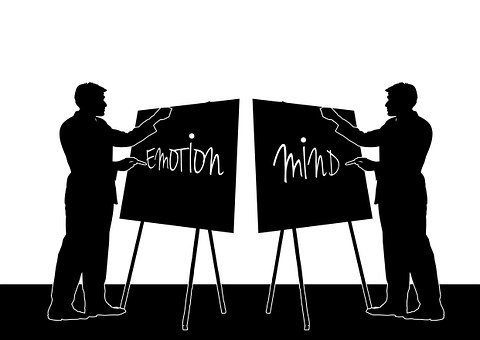Have you ever thought about decision-making as a process we often tend to ignore? We become businesspersons, healthcare specialists, scientists, teachers, hairstylists, etc without knowing what being that certain professional would be like. Yes, our life choices are shadowed by ignorance. Did you know what it would be like before you started your job?
Another life choice that reflects upon decision-making is the choice of becoming a parent. Life choices aren’t about what we want to do, they are about who we become. For example, we choose to marry and have children without knowing what being a parent will be like.
Life is a decision-making rollercoaster ride
The world is an oyster and opportunities sometimes seem endless. Yet, to grab those opportunities we have to make decisions on a daily basis. Decisions on which job to go for, which strategy to execute at work, partner choice, getting married and whatnot.
Consider the decision to pursue a certain profession: art & humanities, business, computer, education, engineering, medical, the list goes on. Once we head in a certain direction, we are faced with further choices. To or not to accept another job offer, switch department, choose a strategy, invest in a company/shares/equities, get further education. How do we make all these decisions? And yet, we all have been making them.
Intuition in making life choices
Many great scientists have investigated how we make decisions. For example, Benjamin Franklin used “prudential algebra”, wherein he assigned a numerical weight to the listed items, and eliminated counterbalancing items. It sounds like an approach that is based on logic, but even Franklin’s approach is based on intuition. We humans have the skill to make farsighted choices, decisions whose consequences might last for years because of our intuition.
Our small decisions are more calculated than big ones
We say, “I decided to become X”, “I decided to marry”, “I decided to have children”, among others. But the paradox is, our big decisions are less calculated than the small ones. We stand before ten different ice-cream flavours and find it really hard to choose only two of them. On the other hand, the deliberations behind a life-changing move to another city could be a short meeting with a friend, who happens to live in the area of your dreams.
One cannot weigh all kinds of decisions
Decisions are complex and may have far-reaching consequences. While we might consider the pros and cons of getting chocolate ice-cream instead of strawberry. No one really lists pros and cons for having children and weighing whether that is a good idea. It rather happens gradually and more or less unintentionally. A relative once told me when she had first child, she felt a deep desire and knew she was ready. She transitioned from not wanting children to want them. The same goes for job decisions, living decisions, and further life choices. We might transition from not being ready for one responsibility to absolutely want it. Ideally, we should always be clearheaded about our decisions.
Navigating imperfect conditions of our lives
However, in reality, we make decisions in imperfect conditions that prevent us from thinking clearly. And at times, we want to avoid thinking too much about certain choices so we don’t stress. On top of it, our present choices are also constrained by past choices. How will you decide? Consider you are offered two jobs: one at a company near where you live, an area you feel comfortable. The other one a little further from your house, in an area you feel isolated, but it’s your dream job. Both of them have the same working hours, conditions and salary. Which one would you prefer emotionally? And which one is better for you and/or for your family? A decision must emerge from a multidimensional matrix.
Decision-making despite challenges, don’t run away
Decisions are unavoidable. More importantly, we face them every day. From a school-going child to leaders in a company to new employees, we are all involved in important decisions. These decisions range from life choice to business preferences. A child might prefer not to do his homework and face consequences the next day. He might be reprimanded or his teacher might take leave the next day. The consequences of our decisions are unknown to us. And we should never shy away from making decisions. Decisions take us further, one at a time. They are crucial to success and to a fulfilled life.
Planning certainly helps
There are many methods for better decision-making and I’m a big fan of them. Firstly, plans definitely help to improve our decisions. This includes, as mentioned, breaking up the work, taking advice from different groups and people with different priorities. While this may be helpful for companies, or for teams; on an individual level, we should trust the natural transition we go through. You might enjoy your carefree life now, but time may come when you would prefer changing diapers.
Also read: Decision-making habits you should adopt for a successful life
Conclusion
We can’t really know in advance what it feels to make a certain move (I call it “move” instead of decisions”). We make life transitions. In her book, “Transformative Experience”, L.A. Paul argues that “for choices involving dramatically new experiences, we are confronted by the brute fact that we can know very little about our subjective futures.” She suggests that living authentically requires leaving our old self behind to create and discover a new self. Part of being alive is awaiting the revelation of who you will become.
You can find more from the writer in http://heart-decisions.com/
Keep following, Wikye.com









